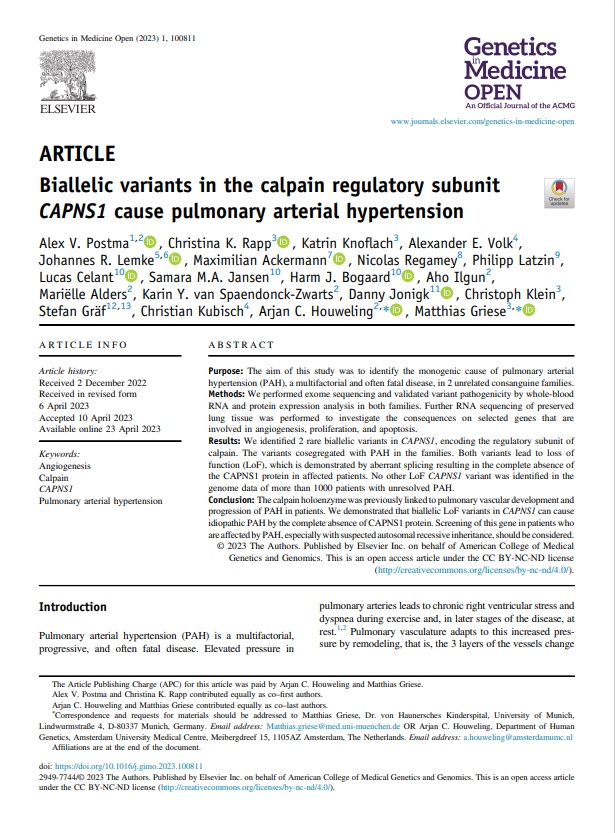Investigation of the underlying genetic variation of idiopathic and heritable pulmonary arterial hypertension (PAH)
Study code
DAA022
Lead researcher
Dr Stefan Gräf
Study type
Data only
Institution or company
University of Cambridge (Department of Medicine)
Researcher type
Academic
Speciality area
Genomics and Rare Diseases, Cardiovascular Disease

Summary
Editors note:
The researchers behind this study are looking to further understand the genetic basis of this condition through accessing data on genotypes related to pulmonary arterial hypertension held on the University of Cambridge’s 'Chromoscope’* data platform.
* ‘Chromoscope’ is a data platform used by researchers wishing to analyse rare genetic variants. For the NIHR Bioresource Rare Disease Project, DNA from consenting participants was collected and their genetic information was stored for future research use. In order for this data to be anonymously accessed for research purposes the NIHR BioResource created an application called ‘Chromoscope’ (previously known as ‘Gene Docs’). ‘Chromoscope’ allows approved researchers to access this genetic data. Before access is given researchers must submit an application to the NIHR BioResource requesting access. The BioResource reviews these applications and if approved, researchers are given access to the required anonymised data.
Publication arising:
Postma AV, Rapp CK, Knoflach K, et al. (2023). 'Biallelic variants in the calpain regulatory subunit CAPNS1 cause pulmonary arterial hypertension.' Genet Med Open. 1(1):100811 (link).
Conclusion:
The calpain holoenzyme was previously linked to pulmonary vascular development and progression of pulmonary arterial hypertension in patients. We demonstrated that biallelic loss of function variants in CAPNS1 can cause idiopathic pulmonary arterial hypertension by the complete absence of CAPNS1 protein. Screening of this gene in patients who are affected by pulmonary arterial hypertension, especially with suspected autosomal recessive inheritance, should be considered.
